|
|
|
Introduction of Banswara |
|
Banswara is
presently known as the City of Hundred Islands due to the river Mahi,
which borders the district and surrounds a number of islands. The Mahi
River, revered by the locals, separates the Banswara and Dungarpur
districts into two distinct regions.
Banswara lies on the southeast of Rajasthan and is bounded by Udaipur
in the west, Chittaurgarh in the north and the states of Madhya
Pradesh and Gujarat in the east and the south respectively.
Banswara can be best described as the native place of the Bhils who
form 39% of the tribal population of India. Banswara either got its
name from bans or bamboo trees (Dendorocalamus stricus) which once
grew in abundance here, or from a Bhil chieftain named Bansna. |
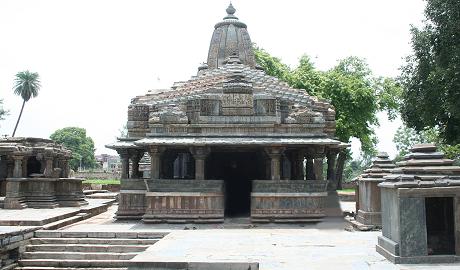
Arthuna |
|
This Bhil chief was killed by Maharawal Jagmal Singh in the battle
over the possession of the region. But Jagmal was quite impressed by Bansnas bravery, and true to his generous nature he named the place
after his rival.
District Banswara is situated in the
southern - most part of Rajasthan. It has an area of 5037 square
kilometre and lies between 23.11° N to 23.56° N latitudes and 73.58° E
to 74.49° E. longitudes. |
|
|
|
History of Banswara |
|
he Banswara district forms eastern part
of the region known as Vagad or Vagwar. The district was formerly a
princely state ruled by the Maharavals. It is said that a Bhil ruler
Bansia ruled over it and Banswara was named after his name. Bansia was
defeated and killed by Jagmal Singh who became the first Maharaval of
the princely state.
It is also named so because of the bamboos (Bans) which were found in
abundance in the forests. In 1913 some bhils revolted under the
headship of a social reformer Govindgiri and Punja which was
suppressed in November, 1913. Hundreds of Bhils were shot dead at the
Mangarh hillock where they were holding a peaceful meeting. The event
is also known as the Mini Jalianwala Bagh massacre. The place has
become sacred and is better known as the Mangarh Dham.
With the merger of the princely states in the Union of India, the
Banswara State and Kushalgarh chiefship got merged in the Greater
Rajasthan in 1949 and Banswara was carved out as a separate district
by merging these principalities. |
|
|
|
Tourist Attraction in Banswara |
|
Tripura
Sundari
A temple of Goddess Tripura Sundari, commonly known as Turtia Maata.
It has a beautiful idol of black stone having 18 hands, each carrying
some symbol, while the Goddess is seen riding a tiger. It is believed
that this temple was built before Samrat Kanishka, who rule here. The
exact date of its construction is not yet known. It is said to be one
of the "Shakti Peeths" of the Hindus having charismatic divine power.
Mahi Dam
Banswara is also well known for the Mahi Bajaj Sagar Project and for
numerous dams and canals situated at beautiful sites. The Mahi river
has a number of islands inside the Mahi Dam catchment area and thus
Banswara is also known as the 'City of Hundred Islands'.
Kagdi Pick Up Weir
This is the main tourist attraction situated on the Ratlam Road from
the main city of Banswara. It's a worthy place to see, especially for
its fountains, gardens and water, spread over a wide area.
Arthuna
This place of great archaeological importance, is the major attraction
of Banswara district. There is a complex of ancient temples which were
built in the 11th and 12th centuries. In ancient times it was the
capital city of the Parmar rulers. Many temples have been excavated
which reveal the glorious past of our rich heritage. It is called the
village of old and broken temples.
Madareshwar
This famous temple of Lord Shiva is situated inside the natural cave
of a high hill on the eastern part of the city. It presents a
sensational natural view. The cave temple provides an Amarnath Yatra
like feeling to the pilgrims, due to its typical location. Inside this
temple, you will find all the religious temple. During Maha Shivratri,
rudra abhishek Pooja is carried out. Kavadi Yatra is to be start from
this Temple to Baneshwar Temple by Walk to bring the Water of Mahi and
Pooja will be carried out from that water to Lord Shiva.
Abdulla Pir
Situated in the southern part of the city is the Dargah of Abdul Rasul
which is known as the "Abdulla Pir". Every year "Urs" is held at the
Dargah and its very popular with the masses. The people of the Bohara
community take part in it in large numbers.
Andeshwar (Jain Temple)
This is very famous Jain temple housing rare Shilalekhs of the 10th
century. Such temples are also found in Talwara, Kalinjara, Bagidora,
Ajna and Banswara. Every Jain people having the culture of visiting
this temple once in their life cycle.
Talwara
It is famous for the ancient temple of the Sun God, Lord Amaliya
Ganesh, Laxmi Narayan Temple, Dwarka Dhish temple and Jain temple of
Sambharnath. A number of Sompura sculpture artists can be seen carving
stones on the roadside in Talwara. |
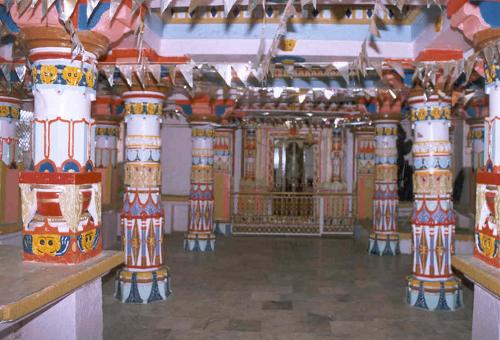 |
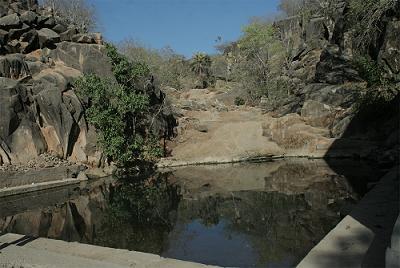 |
|
Chinch |
Bhim-kund |
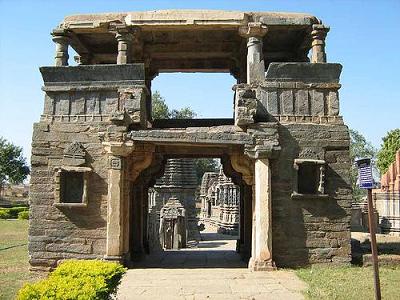 |
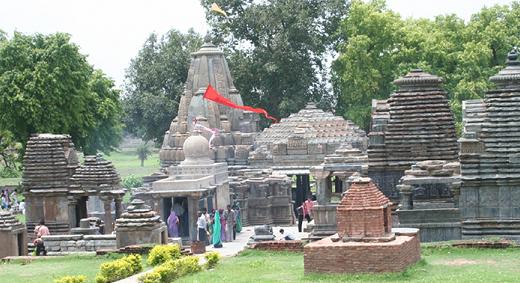 |
|
Arthun |
Arthun |
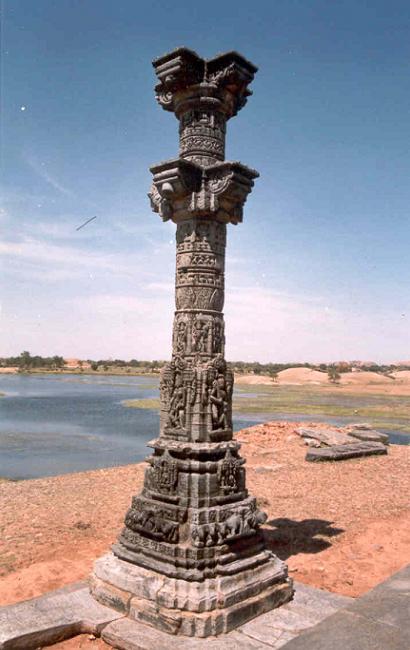 |
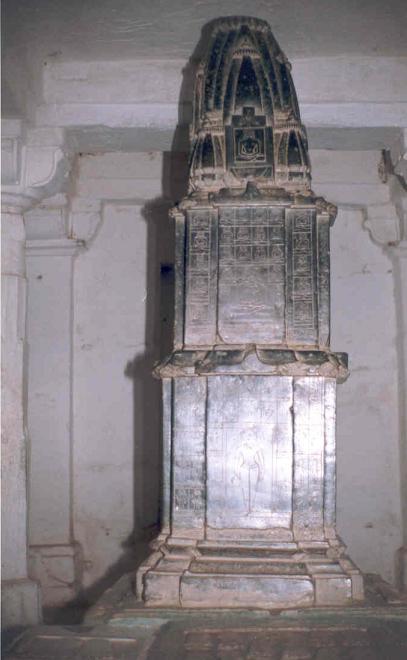 |
|
Arthun |
Nogama |
|
|
Anand
Sagar Lake
On the eastern side of the town lies this artificial lake, said to
have constructed by Lachhi Bai Of Idar - The Rani of Maharawal Jagaml.
The chhatris or cenotaphs of erstwhile rulers of the state are
situated close by. Also near by are the holy trees known as "Kalpa
Vriksha" which are said to fulfill the desires of visitors.
Chheench
This is a famous 12th century temple of "Lord Brahma". The black stone
statue is of an average man's height.
Diablab Lake
A part of this lake is covered with beautiful lotus flowers. On the
banks of the lake is Badal Mahal, the summer residence of the former
rulers. Peoples used to enjoying this place in the summer by going
boating.
Raj Mandir (City Palace)
This 16th century palace is very attractive. Sprawling over a large
area, it is a fine example of old Rajput architecture. The palace is
still owned by the royal family and can be visited only on invitation.
Shri Sai Baba Mandir
This is a famous Sai Baba temple built in top of the hill.
Ram Kund
It is a place surrounded by hills. People call it "Phati Khan" because
it is a deep cave under a hill. There is a pool of very cold water
which is found throughout the year. It is said that Lord Ram, during
his exile came and stayed here for some time.
Bhim Kund
This is a scenic spot. It is believed that during their exile, the
Pandavas stayed here. There is a tunnel here, which is believed to be
going upto Ghotiya Amab, a far off place. It is said that the Pandavas
used this tunnel as their passage during the rainy season.
Paraheada
This is a famous Shiv temple of the 12th century which was built by
the king Mandalik. |
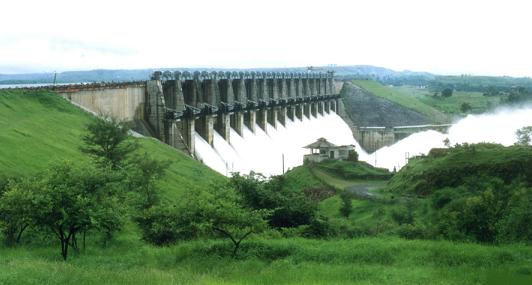 |
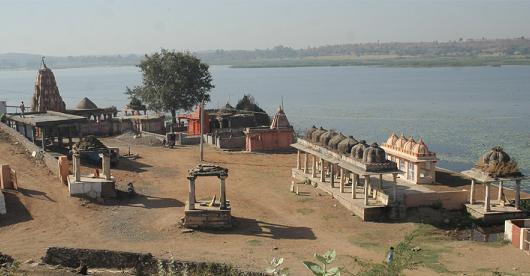 |
|
Mahi Dam |
Paathela |
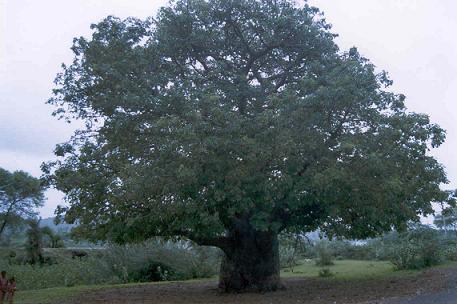 |
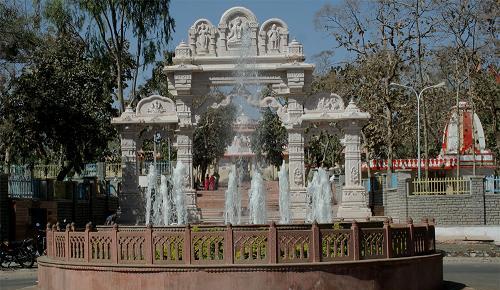 |
|
Kalpvarksh |
Tripura
Maingate |
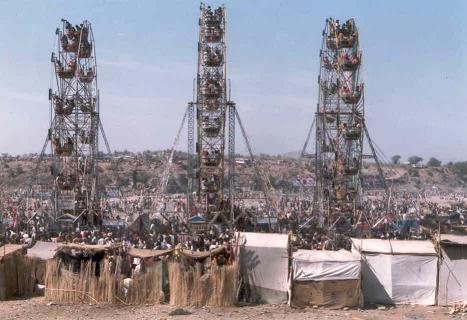 |
 |
|
Fair |
Culture |
|
|
How to Reach Banswara |
|
By Road:
As such there is no Railway Station (Meter Gauge / Broad Gauge) at
Banswara, But Ratlam Junction (80 KM) is the nearest Railway station
to Banswara and it is the Major Junction to go to Delhi, Mumbai,
Bhopal and Ahmedabad.
By Air:
As such there is no Airport at Banswara, But Udaipur (160 KM), Indore
(MP) (212 KM) & Ahmedabad (Guj) (285 KM) are the nearest Airports.
By Road:
Rajasthan, Gujarat and Madhya Pradesh roadways operates frequent
busses and connects it to other major cities of India which includes
Ahmedabad, Baroda, Ujjain and Jaipur. |
|
|
|
You will visit
“Banswara”
during the below Tour of Rajasthan. |
|
 31 Days Rajasthan Tour
(Including Banswara)
31 Days Rajasthan Tour
(Including Banswara)

31 Days / 30 Nights
Delhi - Alwar - Deeg - Bharatpur - Fatehpur Sikri - Agra - Dholpur -
Ranthambore - Tonk - Bundi
- Jhalawar - Kota - Bijolia - Chittorgarh - Dungarpur - Banswara -
Udaipur - Rajsamand -
Nathdwara - Kumbhalgarh - Ranakpur - Mount Abu - Rohetgarh - Jodhpur -
Jaisalmer - Bikaner -
Nagaur - Mandawa - Sikar - Jhunjhunu - Jaipur - Delhi |
|
|
|
|
|
|
|
|
|